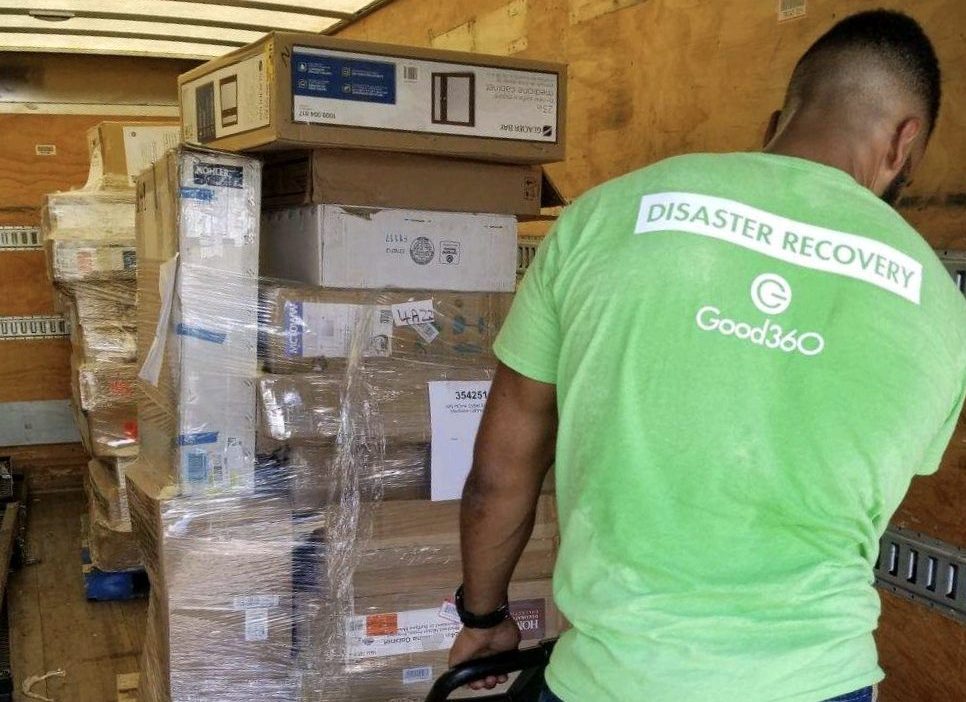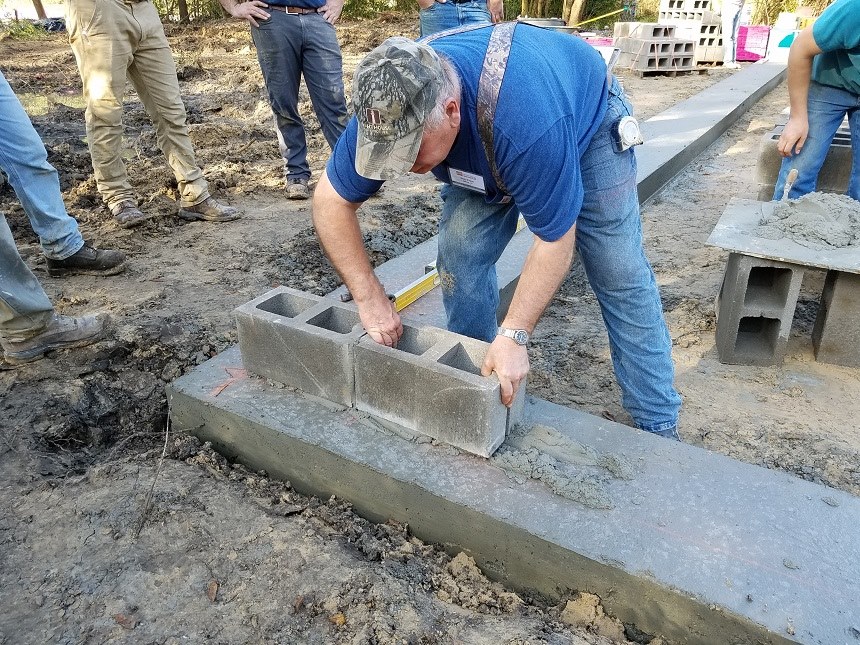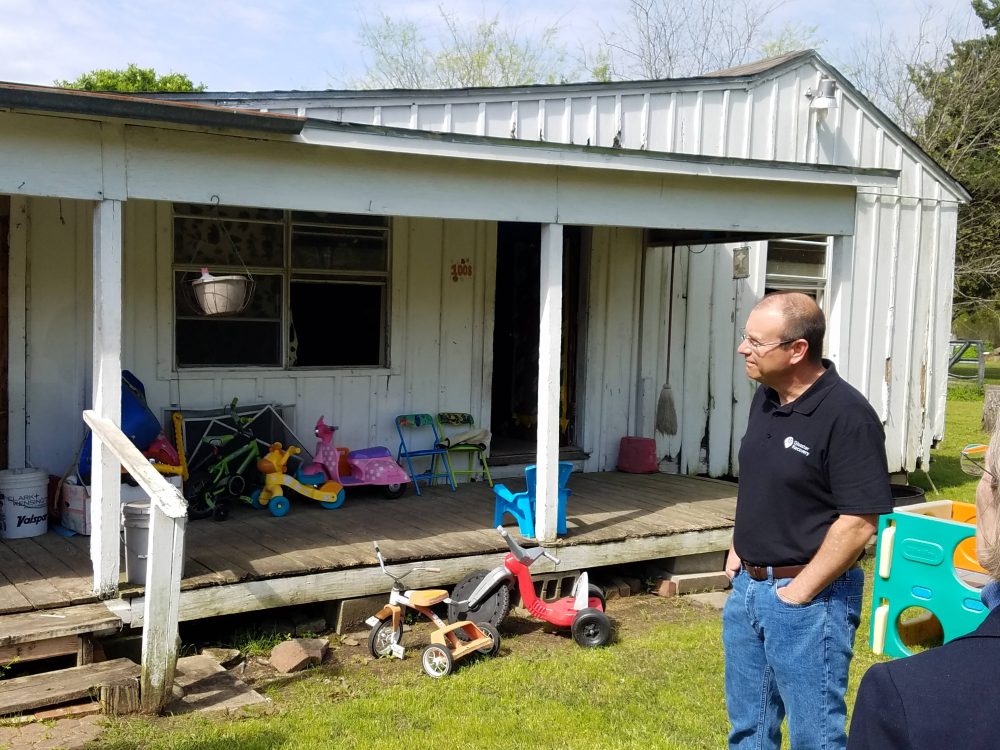Good360 and CDP Partner to Transform Long-Term Hurricane Recovery in Texas
When most people think about what it takes for communities to recover after a devastating hurricane, thoughts immediately turn to the rebuilding of homes and businesses. But managing how the materials are transported, stored and distributed is an essential piece of the puzzle and an important consideration for funding. At Good360, we have made a […]

When most people think about what it takes for communities to recover after a devastating hurricane, thoughts immediately turn to the rebuilding of homes and businesses. But managing how the materials are transported, stored and distributed is an essential piece of the puzzle and an important consideration for funding.
At Good360, we have made a clarion call for a paradigm shift in disaster giving — one that emphasizes a more thoughtful approach to disaster response as well as more effective philanthropy to better support the long-term recovery of affected communities. To be sure, we are not alone in this ambitious effort. Chief among our allies is the Center for Disaster Philanthropy (CDP), with a mission to transform disaster giving by providing timely and thoughtful strategies to increase donors’ impact during domestic and international disasters.
Given the group’s influence in shaping disaster philanthropy, we were beyond thrilled to receive a $250,000 grant from the CDP Hurricane Harvey Recovery Fund in August 2018 to help accelerate recovery in hurricane-affected communities. Specifically, the funds are being used to improve the distribution, warehousing and pre-staging of needed goods in southeast Texas so they can be more accessible to Good360’s nonprofit partners.
The transportation and warehousing shortage in disaster recovery is a serious one. When disaster strikes, a critical step in coordinating an adequate response is not just procuring needed goods, but also finding a way to get the right products to the right place at the right time. In many situations, smaller nonprofit organizations will resort to renting moving trucks or even using their personal vehicles, diverting precious manpower and resources away from relief efforts. Larger nonprofits such as Good360 can turn to commercial shipping and warehousing companies, which can be expensive to engage, especially over an extended period of time. In either case, the solutions may be only temporary, difficult to control and not economical or scalable.
Good360’s partnership with CDP is helping to solve some of these roadblocks to recovery in Texas. Our work in the region has brought us into contact with many national and local groups that have been limited by their ability to pick up and store the amount of goods sufficient for disaster response. To start, this grant has enabled us to purchase a 26-foot box truck, which is much larger than what is available to most small nonprofits.
Additionally, we have secured 4,000 square footage of warehouse space for storage in support of our regional partners. Our truck will be used in conjunction with our warehouse to deliver large quantities of supplies in places semi-trucks cannot easily go. With a local warehouse, we’re also able to pre-stage highly needed goods relevant for many different stages of recovery such as batteries, flashlights, personal protective equipment (PPE), wipes and blankets for short-term response as well as furniture, insulation, flooring and roofing materials for long-term recovery.
These investments have allowed us to deliver even more needed goods throughout southeast Texas to communities recovering from Harvey, including a recent delivery of bathroom supplies to East Harris County Empowerment Council; picking up donations from local Walmart store locations for United Way Galveston County – Mainland; and partnering with High Socks for Hope to deliver furniture to 27 impacted homes.
The CDP grant funds one initiative, among many, that Good360 has pursued to support the recovery of communities impacted by Hurricane Harvey. In support of more thoughtful giving in disasters in general, we launched the Resilient Response Initiative, a collaborative partnership with All Hands and Hearts – Smart Response and Global Citizen, on the one-year anniversary of Hurricane Maria in September 2018. Good360 has also partnered with the Rebuild Texas Fund to distribute millions of dollars worth of product donations.
Our new assets in southeast Texas will ensure that we continue to be a force-multiplier for organizations doing good in this region. Support of this nature from a partner like CDP is a game-changer because of the recognition that the development of infrastructure is hugely needed in order to serve disaster-impacted communities most effectively. Our collective desired outcomes, such as a family receiving a truckload of new furniture for their rebuilt and repaired home, are only possible by investing in the foundation to make it happen. A displaced family doesn’t get to go home by magic – there’s a committed and hardworking network of people, partners, logistics, systems and technology to help make it happen.
More like this

Long-Term Recovery Groups: Sharing Successes from Hurricane Harvey Grantees

